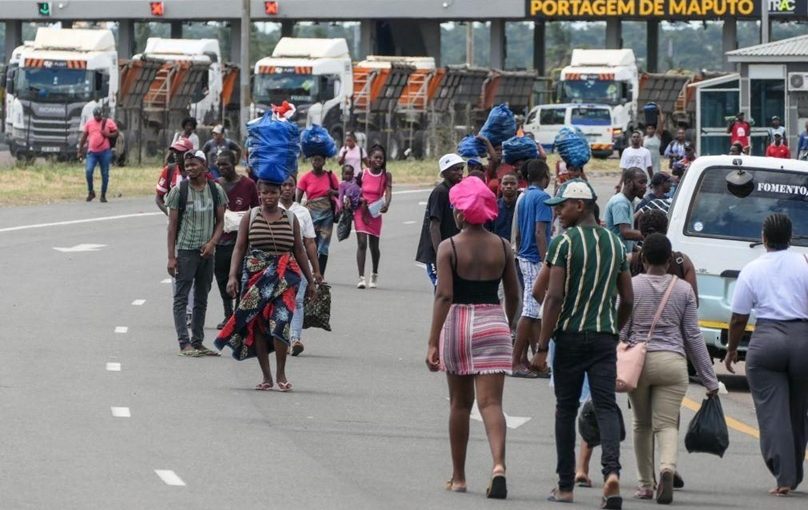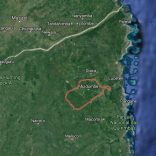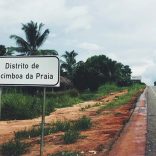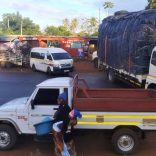Mozambique: Three of the criminals shot in Matola identified - AIM report
Mozambique: Traffic normalised on N4 Maputo-South Africa road

Photo: Lusa
The blockade of the Maputo tolls on the N4, the main access road to the Mozambican capital which also connects to South Africa, ended at around 5.30pm , after more than ten hours on Wednesday.
Some hauliers who had blocked the road shortly after 7am, using a tanker lorry as a shield to avoid police intervention, began to peacefully remove their vehicles a few minutes after 5pm, and in less than 30 minutes traffic was practically restored, with the police taking over the road to avoid further traffic disruption.
For more than ten hours, the police, with a strong contingent at the scene, avoided using force to demobilise the protest against the resumption of toll collection, in the face of the tanker truck used by the protesters, who immobilised it by puncturing its tyres, next to a petrol station a few dozen metres from the toll plaza on the N4, owned by the South African concessionaire TRAC.
The demobilisation was voluntary and the police tried unsuccessfully throughout the day to negotiate the departure of the demonstrators, who also vandalised part of TRAC’s premises, a few hundred metres away, destroying two vehicles inside.
Quickly, dozens of vehicles that had been immobilised for several hours, including lorries with cargo for South Africa, resumed traffic on the road, which as well as connecting to the border is the only direct access between Maputo and Matola, the country’s two largest cities, but most of the booths did not charge a toll.
The TRAC facilities, with no employees inside, remained under police surveillance throughout the day, with an armoured Rapid Intervention vehicle at the door, while on the N4, next door, Rapid Intervention police fired shots and threw tear gas to stop further blockades.
Toll collection on that road, operated by South African company TRAC, was suspended for weeks due to the post-election demonstrations in Mozambique and resumed last Thursday.
Since tolls were resumed on the N4, which connects Maputo to the Ressano Garcia border, a structural route for South African ore exports, traffic on the road has been restricted by protests and motorists forcing the gates to pass without paying, which led the concessionaire TRAC to install chains next to the payment booths.
In December, the then presidential candidate Venâncio Mondlane called for tolls not to be paid throughout the country, and after some toll booths were destroyed and vandalised, several were closed, including those of TRAC.
Meanwhile, in a document published on 21 January, with 30 measures that he is demanding for the next 100 days, Venâncio Mondlane, who does not recognise the official results of the 9 October general elections, once again demanded that tolls not be charged throughout the country.
“On the N4, the tolls, due to the time they have already been in place, have been profitable in relation to the investment made,” the document states, demanding the extension of the non-payment of tolls during this period, also claiming that, on several toll roads in the country, “there was no public consultation” about this charge and “the principle of the alternative route was not respected”.












Leave a Reply
Be the First to Comment!
You must be logged in to post a comment.
You must be logged in to post a comment.